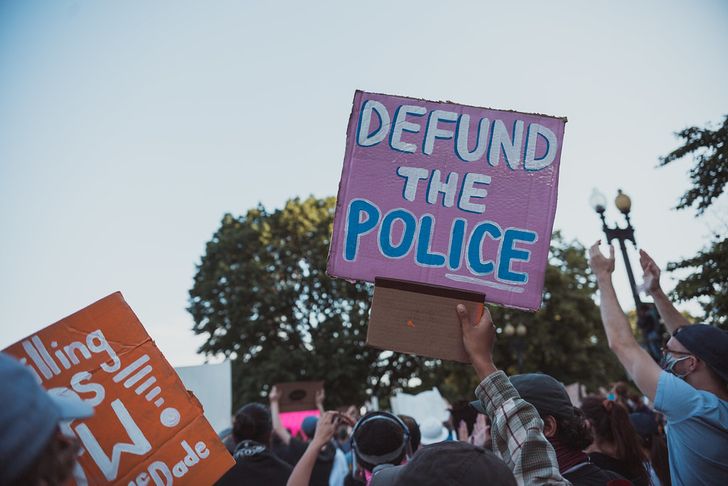As Black Lives Matter protests continue across the country, many activists are calling for cities to defund the police in response to police brutality against black people. This viewpoint has been a controversial, with opponents raising concerns about public safety and upholding the law. However, defunding the police is a viable solution: putting less money towards the police means more funds for resources for underprivileged communities, especially communities of color.
The idea of defunding the police goes beyond just taking money away from police departments. Those who advocate for defunding do so with a "divest/invest" model in mind: the money that would have been used to fund the police would instead be redirected and invested in underprivileged communities, such as many black communities, in order to provide necessary resources. Reducing police budget can allow for funding of mental health resources, social services, counseling, housing, and other resources and community-led programs that would help to create a safer environment. The availability of these resources to underprivileged communities and communities of color will benefit public safety. Concerns that defunding the police will be detrimental to public safety actually highlight the problem: why should we be so reliant on police for every aspect of public safety?
The police are not necessarily trained to respond to every situation optimally. "Defund the police" also calls for alternative methods to responding to emergencies. In defunding the police, more money can be put into ensuring that there are trained professionals available to respond to emergencies effectively. For example, in a mental health emergency, a mental health worker would be better equipped to respond to the situation than a police officer. In instances of substance abuse, healthcare workers and trained responders could help provide people with the help they need. In addressing domestic violence, a social worker might be able to alleviate the situation more effectively than police. Defunding the police means also providing people with the help they actually need and sending qualified professionals to respond to situations that they are trained and equipped to address. Police officers are not trained to effectively respond to every situation. In examples such as substance abuse or mental health crises, police presence can often escalate the situation instead of helping those in need.
We need to begin to realize that public safety should not rely on police alone, and relying on one group to respond to every emergency is ineffective and, in many cases, dangerous. Expecting police officers respond to situations that they are not sufficiently trained to address leads to more arrests, when many of these emergencies could be de-escalated and ameliorated by a well-trained professional. Reliance on police is also an issue that contributes to systemic racism: black communities are heavily over-policed, and black people are disproportionately incarcerated. These marginalized communities often lack proper resources such as public and social services to fully address their residents' needs, and funding these services as well as implementing community-led organizations can help to address the needs of the community and improve conditions for its residents. In doing so, these community-led solutions can also address some of the motivations behind certain crimes and decrease the need for police intervention. Investing in marginalized communities is ultimately for the benefit of public safety.
In order to understand why there is a need to defund the police, we need to shift our view of public safety and how public safety can be upheld. The fact is that the police alone cannot be expected to respond to every emergency. Instead of equating police with public safety, we need to view resources such as social services and health care as contributors to public safety, and we need to challenge the idea that more police will create a safer environment: we've already seen that for black communities, this is not the case.

















 teenhorseforum
teenhorseforum














